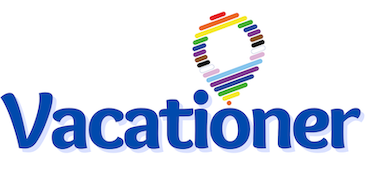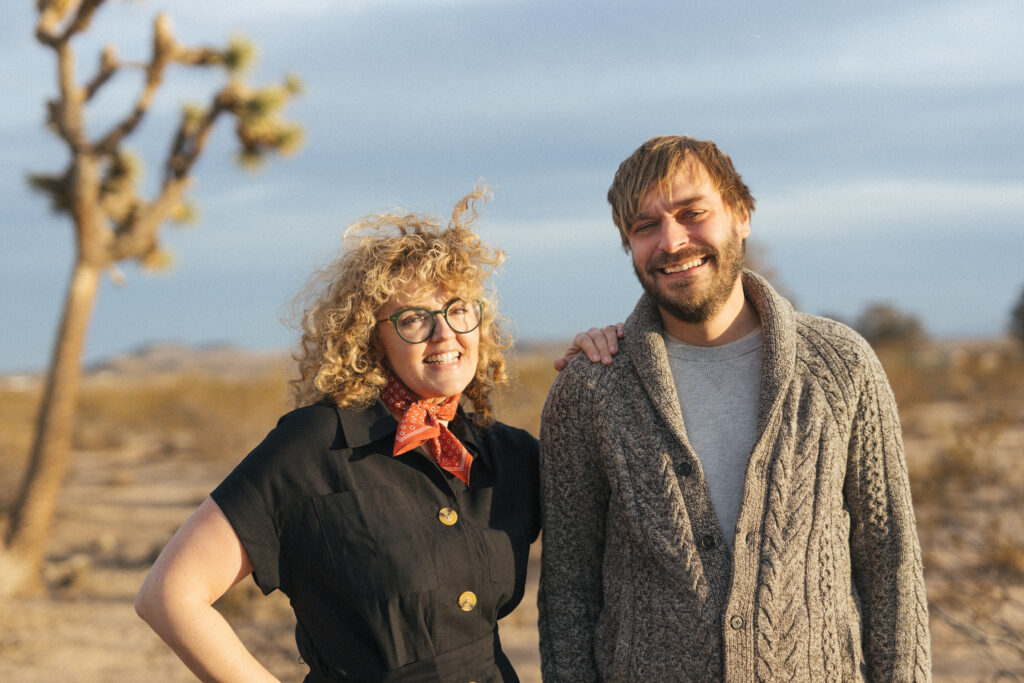The Host Company Wants to Add Convenience to Your Airbnb Stay
Souvenir buying used to be an integral part of any sort of travel. The ritualized buying of mementos saw its peak during the 70s and 80s, when bumper stickers, keychains, and magnets boasting the names of popular tourist destinations like Route 66, Provincetown, and San Francisco could be found everywhere. As we entered the 90s, however, the act of buying souvenirs seemed to fall by the wayside as family dynamics changed, the Internet became mainstream, and life itself took on a more hurried pace. Thankfully, in this era of Airbnb, souvenirs are once again having their moment.
Airbnb itself has been a response to over-commercialism and the soaring prices of staying at a hotel through the years. People are now yearning for more intimate and affordable experiences that enable them to fully immerse themselves in the daily routine of the place they are visiting. Airbnb hosts help tailor that experience for travelers, creating memories that vacationers the world over want to hold on to.
Annie Sloan and Mikel Hubbard are taking this idea of curation and convenience provided by Airbnb hosts to the next level. As the founders of The Host Co., they have created the first-of-its-kind e-commerce platform that enables thousands of short-term rental hosts to create their own unique digital retail stores, making the upsell of items like souvenirs both automated and convenient.
Annie Sloan is a former HGTV producer and creative director who has found tremendous success in short-term rentals, flipping numerous properties for Airbnb and becoming a go-to host. After witnessing several pain points in the industry, Sloan and her business partner Mikel Hubbard, who is part of the LGBTQ+ community and an Airbnb host himself, co-founded this unique and timely business.
We sat down with them to get more information on this exciting venture.
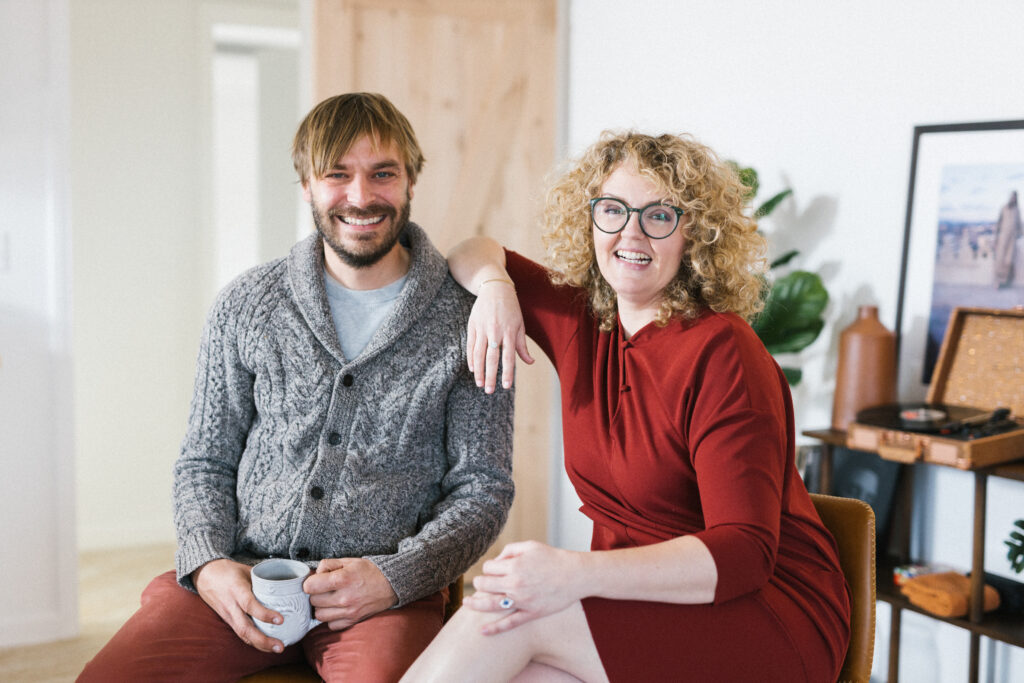
Vacationer: Annie, what has the resurgence in souvenir buying looked like and what is its connection to Airbnb hosts?
Annie Sloan: Guests no longer want to stay at a generic hotel when they go on vacation – they want an “experience”. Brands like The Ace have realized this. They are curators of “local cool” and focus on hyper-local makers. At The Host Co., we extend that to Airbnb – because millennials want not only an experience, they want to take part in that experience at home.
The word “souvenir” has gotten a bad rap over the years, but souvenir is simply the French word for “memory”. By providing curated mementos, Airbnb hosts are extending their curated taste (that’s why you book the Airbnb after all) to products and services, making some profit in the process. We know that guests really want and need more from their Airbnb stays and also have the money to spend.
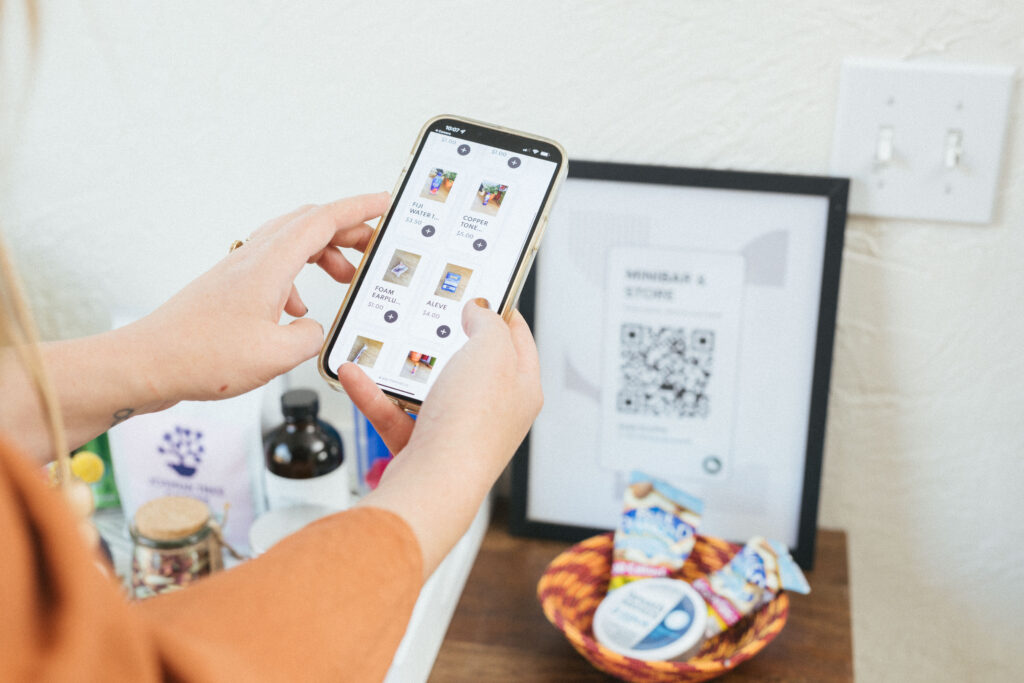
What types of souvenirs are hosts offering and what service does The Host Co. provide?
Annie Sloan: There are two types of things that we offer: services and products. And both are “souvenirs”! We help hosts connect guests with services like a tin-type photography shoot, bringing in a tattoo artist for bachelor party flash tats… even bringing in beer burros, which are donkeys that walk around the property with saddle bags full of beer. These are experiences that you often photograph and post to social – we can even help you get framed photos to take home.
As for products, we see local products, like Joshua Tree Coffee or Joshua Tree mugs selling well. Something that is locally made or has the name of the location and can pack easily will sell well. Quilts, tote bags, and hats are also big sellers. We have a Host in Joshua Tree who is selling $250 handmade sunhats and they are flying off the shelves.
What made you realize the need for this service? What were the pain points in the industry that you uncovered?
Annie Sloan: Ha! I realized we needed this service when I was hungover in an Airbnb in the middle of nowhere. I would have paid $50 for Advil and Gatorade at that moment. The pain point here is that short-term rentals just don’t have the amenities guests need and crave: no mini-bar, no concierge, no gift shop. And as a host, I truly know what my guests need because they ask me for it. Do you have a phone charger? How about sunblock? Where did you get those cute mugs? These items are just too expensive to provide for free. Being both a super host and a creative director in the tech industry (most recently at Facebook) I knew that I could actually solve this problem through automation and technology. Making guests much happier about their stay and providing an extra revenue stream for hosts. Win-win!
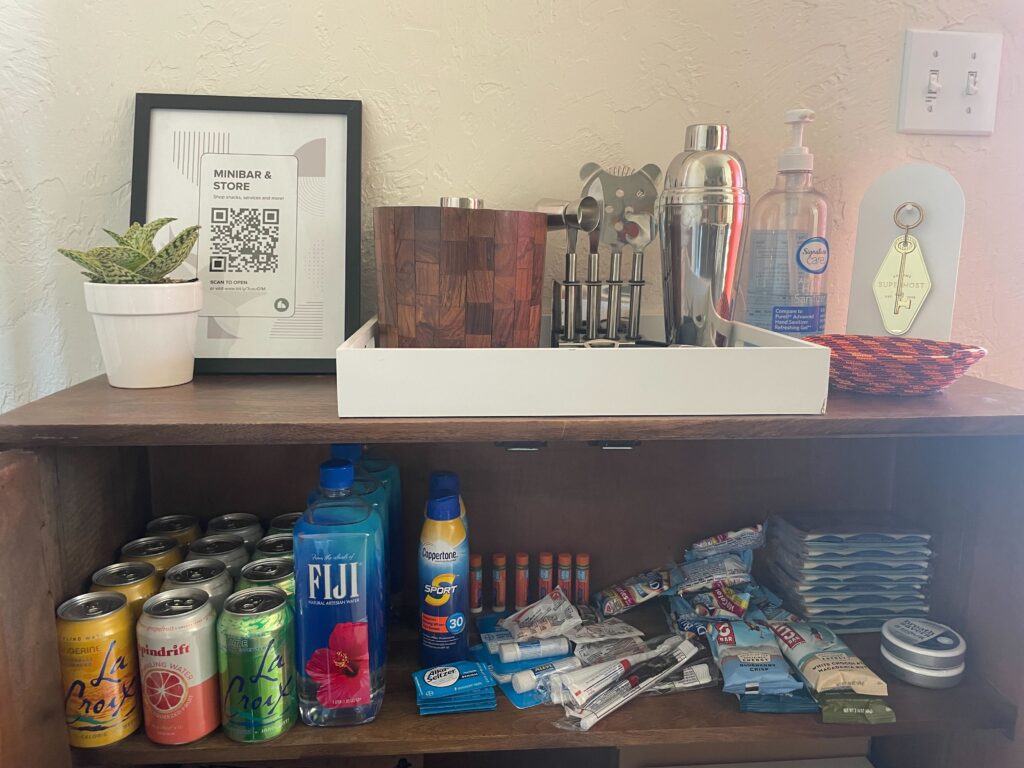
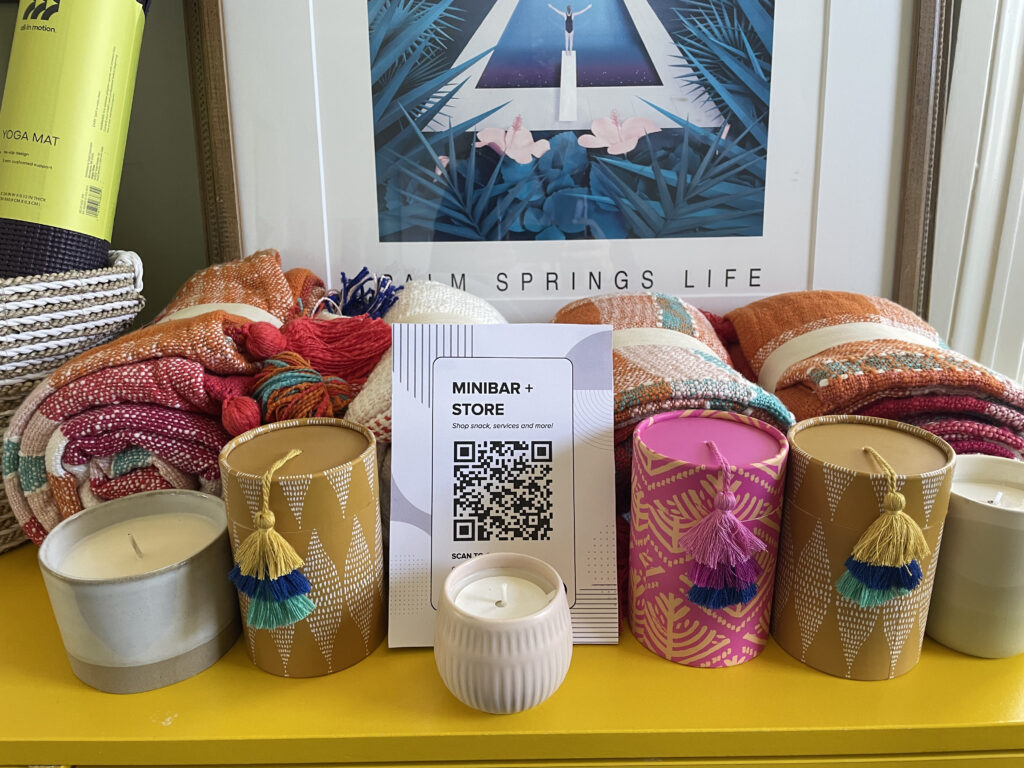
Mikel, what attracted you to invest in this business venture? Why do you feel it’s important?
Mikel Hubbard: I have been an Airbnb host since 2013 and would be coordinating massages, chefs, and telling guests where to buy my decor without making any compensation for it. Guests would ask for things like toothbrushes and extra coffee and I was so torn about what was the acceptable amount of stuff to provide and what should guests have to pay for. I knew there had to be a better way to help guests and make money off that extra work after they checked in. Owning a short-term rental is like owning a boutique hotel and I was shocked that no one was really assisting owners in this space since literally millions of people became hotel owners in the last ten years with no experience. So, The Host Company was born essentially to do that: help hosts make income and make the experience easier for them and their guests.
In your experience what relationship does the LGBTQ community have with souvenir buying and what types of things are we buying?
Mikel Hubbard: I guess I can’t speak for the community as a whole, but LGBTQ travel is big business and we tend to like to feel pampered on vacation just like anyone else; so having souvenirs, Advil, and bottled water at our fingertips without having to run the store feels like a luxe hotel, and you know we love a good luxe hotel!!
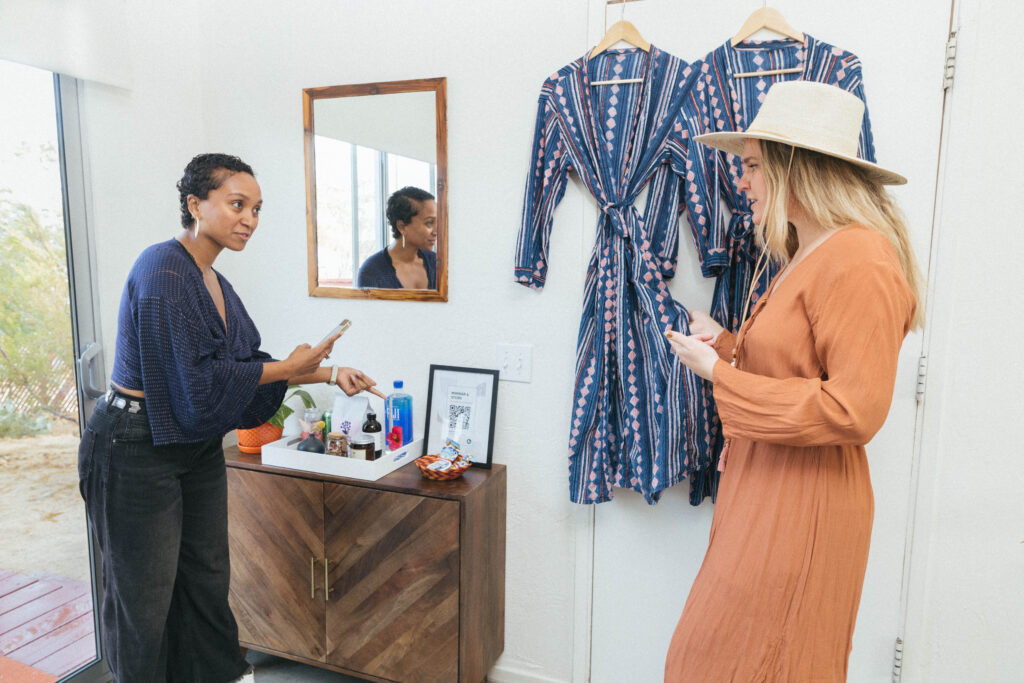
What are your experiences as an LGBTQ+ traveler? Any favorite destinations?
Mikel Hubbard: I’ve been a bit of a fearless traveler most of my life, having backpacked a lot of the world solo or taking a partner to Belize (where being gay is illegal), so I find adventure isn’t adventure without a little danger and unknown. Maybe that’s why I’m so obsessed with deserts and actually moved to my favorite desert town: Joshua Tree. But backcountry hiking in southern Utah or riding camels in the Sahara, there’s just something so thrilling to me about being in a place where humans really aren’t supposed to be.
Any insights to share as an LGBTQ business owner? Unique challenges? Rewards?
Mikel Hubbard: I think we live in an interesting time where LGBTQ, female and non-white founders are being sought out for different perspectives and unique leadership, and encourage anyone in those groups to take advantage of that. I think being LGBTQ you assume it’s an uphill battle, but we live in a time where it actually makes us special – so get that brass ring!
For more information and to check out everything they have to offer head over to The Host Co.
